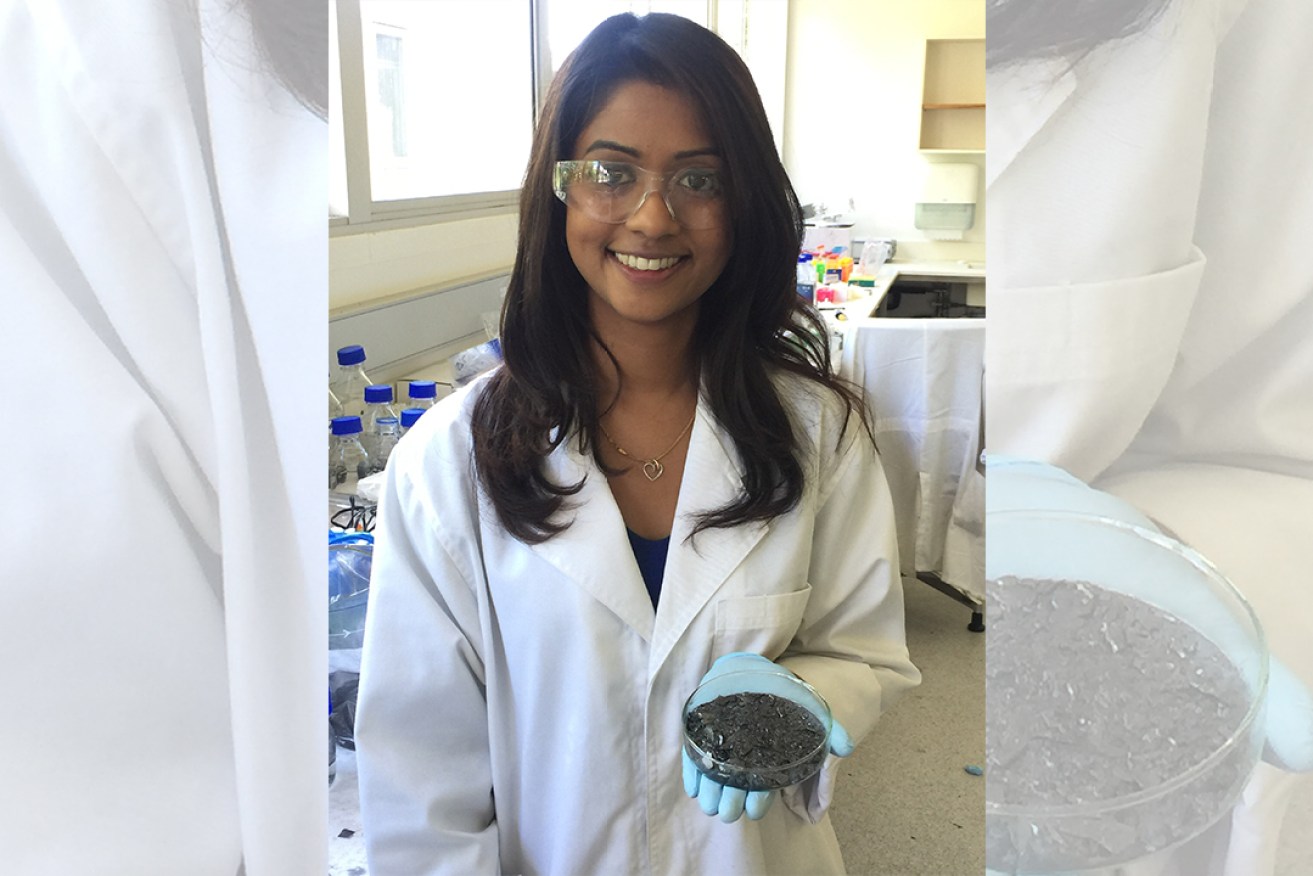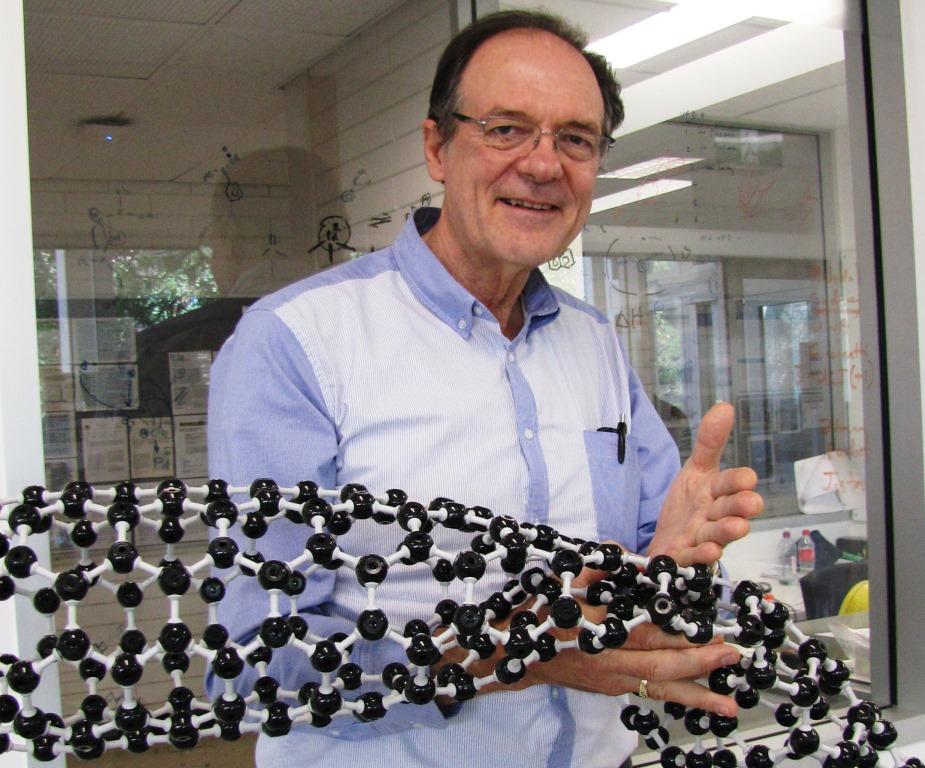
Egg ‘unboiling’ machine enables graphene battery development
The Australian researchers who successfully unboiled an egg are turning their attention to capturing the energy of graphene oxide (GO) to make a more efficient alternative to lithium-ion batteries.


Research Associate Dr Kasturi Vimalanathan with some graphene oxide ore at the Raston Lab at the Centre for NanoScale Science and Technology, Flinders University, Bedford Park.
The team at Flinders University has partnered with Swinburne University of Technology in Victoria, Australian Stock Exchange-listed First Graphene Ltd and manufacturer Kremford Pty Ltd.
The collaboration is developing a GO-powered battery, a super-capacity energy storage alternative to emerging lithium-ion battery (LIB) technology.
Graphene is the lightest, strongest, most electrically conductive material available and has been predicted to generate revolutionary new products in many industry sectors. But so far unreliable quality and poor manufacturing processes have prevented an industrial graphene market.
In 2015, Flinders University scientist Professor Colin Raston was awarded an ‘Ig Nobel’ science award for creating the Vortex Fluidic Device (VFD) and using it to unboil an egg.
The Vortex Fluidic Device, designed and manufactured at Flinders University, is being used in chemical research around the world.
It has been used in a number of new and emerging ‘clean’ nano-technologies, including to accurately slice carbon nanotubes to an average length of 170 nanometres using only water, a solvent and a laser.
It has also been used to process graphene to a high quality for commercial use.

Professor Colin Raston, South Australian Premier’s Professorial Research Fellow in Clean Technology, with a large-scale model of a carbon nanotube.
VFD creator and professor of clean technology at Flinders University, Professor Raston, said the production of GO from graphite ore with minimal waste was an important part of the collaborative project.
“This project aims to develop the manufacturing specifications for the commercial production of a graphene oxide super-capacitor with the ‘look and feel’ of a LIB but with superior performance across weight, charge rate, lifecycle and environmental footprint factors,” Professor Raston said.
The AU$3.45 million project is being supported by a $1.5 million Cooperative Research Centre Project grant through the Australian Government’s Advanced Manufacturing Fund.
First Graphene will use the Flinders University technology to produce the highest-quality graphene at scale and to become a global supplier of graphene nanomaterials products.
Researchers at Swinburne’s Centre for Micro-Photonics are working on a commercially viable, chemical-free, long-lasting safe GO-based supercapacitor, which offers high performance and low-cost energy storage capabilities.
South Australia is a global leader in renewable energy and is also the home of the world’s biggest lithium-ion battery. The 100MW/129MWh Tesla battery at Neoen’s Hornsdale Wind Farm in the state’s Mid North was switched on this month.
Professor Raston said there was significant global research to improve energy storage capability to support its role in the development of sustainable energy storage systems.
“For example, we’re seeing the rapid rise of LIB around the world, notably with South Australia’s significant investment in the new storage facility near Jamestown in this state,” he said.
First Graphene (ASX code FGR) managing director Craig McGuckin said the funding would propel the company’s innovative approach to finding real-world applications for graphene.
“The success in the fourth round of the CRC-P funding demonstrates the high regard in which the company’s research efforts are held,” Mr McGuckin said.
“It also shows the robustness of the programs designed by FGR’s university partners.”




